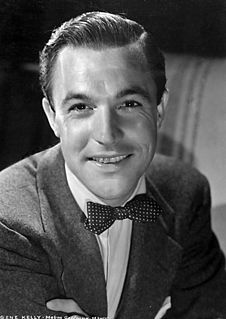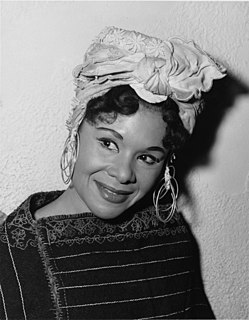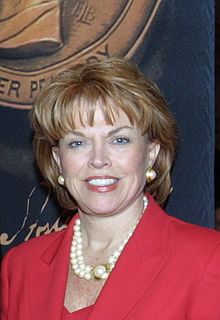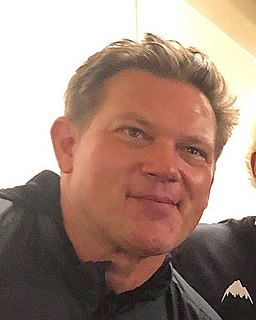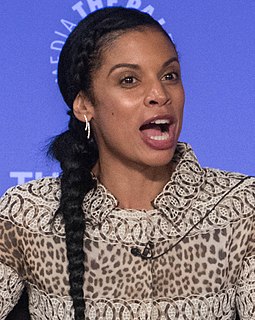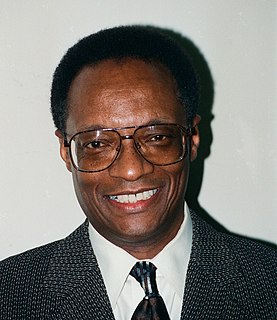Top 79 Pbs Quotes & Sayings - Page 2
Explore popular Pbs quotes.
Last updated on April 19, 2025.
The insecticides kill the black flies, but also destroy much of the food chain for the bird, fish, and animal life which also inhabit those regions. The fish of the Great Lakes are laced with mercury from industrial plants, and fluoride from aluminum plants poisons the land and the people. Sewage from the population centers is mixed with PCBs and PBS in the watershed of the great lakes and the Finger Lakes, and the water is virtually nowhere safe for any living creatures.
The earliest stand-up comedy I was aware of was Bill Cosby. I watched Saturday Night Live as soon as I was aware of it, and Monty Python used to be on PBS at weird hours, so I used to try to watch that. And I loved George Carlin on SNL, that was the first stand-up I ever really remember seeing on TV. And then Steve Martin. I guess I was in fifth or sixth grade when Steve Martin showed up, and he was instantly my idol. And Richard Pryor around the same time too, I sort of became aware of him, though I don't remember the first time I saw him.
A generation ago, or two, when there were three channels, plus PBS, and when you needed - when you needed 15 million people to make a living, the media could focus on the broad country. And most people had no choice about getting political information. It was there at 6:30 whether you wanted it or not.
my dream is someday to have a bank of TVs, where all the different channels could be on and I could be monitoring them. I would love that. The more the better. I love the tabloid stuff. The trashier the program is, the more I feel it's TV. ... Because that's TV's mode. That's the Age of Hollywood. The idea of PBS - heavy-duty Masterpiece Theater, Bill Moyers - I hate all that.
In my opinion, the most important thing as a woman leader-and I learned this early through a whole bunch of great women who were in my life (and men, I have to say)-is that if you have a position of leadership and power and you don't use it in a different way, then you're wasting it. So when people used to say to me when I was the first woman president of PBS, "Well, you know, does that mean that as a woman you're going to be a different kind of president?" And I would say, "Well, I hope so!"
PBS was just such an awesome resource for a child's early development. And now I realize Mister Rogers is also an awesome resource for an adult's development because his philosophies are just timeless and are so relevant and are so important and are so simple and just something we can all grasp onto easily.
I started as a child, in this PBS series 'Voyage of the Mimi,' which led to driving down to New York for 'Afterschool Special' auditions, which led to moving to Los Angeles. I wanted to be an actor. But in L.A., I got into film technology, and I was building cheap editing systems and would edit my friend's acting reels.
When I start to think about all the things, I'm doing sometimes I just have to thank the man upstairs. Because I'm doing the morning show here in Chicago 5 days a week, and I have the syndicated radio show that's been going on now for several years. In addition we are in the midst of taping 13 episodes of a television show-The Legends of Jazz: The Masters of jazz on PBS-TV.
Fox News is no monopoly. It is a singular minority in a sea of liberal media. ABC, NBC, CBS, PBS, NPR, CNN, MSNBC vs. Fox. The lineup is so unbalanced as to be comical - and that doesn't even include the other commanding heights of the culture that are firmly, flagrantly liberal: Hollywood, the foundations, the universities, the elite newspapers.
If there is anything good to be said about my particular line of work, it's that we get to tell people the news they need to hear, and to put it in context. To get to that - for one hour every night on the 'PBS NewsHour,' and for an additional half-hour every Friday night on 'Washington Week,' we have to slog through a lot of tough stuff.
Mirabelle replaces the absent friends with books and television mysteries of the PBS kind. The books are mostly nineteenth-century novels in which women are poisoned or are doing the poisoning. She does not read these books as a romantic lonely hearts turning pages in the isolation of her room, not at all. She is instead an educated spirit with a sense of irony. She loves the gloom of these period novels, especially as kitsch, but beneath it all she finds that a part of her indentifies with all that darkness.
At the end [when I speak about] magma under us everywhere, how it's monumentally indifferent to scurrying roaches, recoiled reptiles, and vapid humans alike. You see, you would never hear anything like that in a National Geographic or a PBS movie. This is clearly a transgression when it comes to being politically correct with your commentary.
The New York Times and PBS are gatekeepers of a sort. And they perform that role of gatekeeping with a set of rules and aspirations about where they want to lead their viewers and their readers. They value objective facts, and they attempt to transmit a comprehensive view of the world. And they do have values. And they do lead their viewers and their readers to certain conclusions. But it's different than such monopolies as Apple or Google which are dissecting information into these bits and pieces, which they're then transmitting to people. And it's about clicks.
But there were alternative media outlets. Oh sure, and you know who listens to them? Pansy, overeducated know-it-alls, and you know who listens to them? Nobody! Who's going to care about some PBS-NPR fringe minority that's out of touch with the mainstream? The more those elitist eggheads shouted "The Dead Are Walking," the more most real Americans tuned them out.

